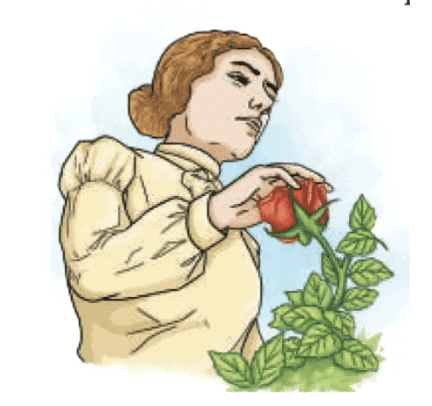CBSE Class 7 English Unit 1 Three Days to See Worksheet - Free Download
| Table of contents |

|
| Multiple Choice Questions (MCQs) |

|
| Fill in the Blank |

|
| True or False |

|
| Very Short Answer Questions |

|
| Long Answer Questions |

|
Multiple Choice Questions (MCQs)
Q1: Who is the author of the essay “Three Days to See”?
a) Eliza Cook
b) Kamala Nair
c) Helen Keller
d) King Bruce
Q2: What does Helen Keller enjoy doing to experience the world?
a) Listening to music
b) Touching things
c) Painting landscapes
d) Writing stories

Q3: What does Helen plan to do on the first day of having sight?
a) Visit museums
b) Watch the sunrise
c) See her friends’ faces
d) Observe city life
Q4: What does Helen call the eyes in the essay?
a) Mirror of the heart
b) Window of the soul
c) Light of the mind
d) Door of the spirit
Q5: What is the meaning of the word “panorama” in the essay?
a) A quick look
b) A wide, beautiful view
c) A small shake
d) A tiny piece of food

Fill in the Blank
Q1: Helen feels the _______ of a leaf to enjoy its shape.
Q2: On the second day, Helen wants to watch the _______.
Q3: Helen plans to visit _______ to learn about history.
Q4: The word “quiver” describes a small, fast _______.
Q5: Helen encourages people to use their _______ to find happiness.

True or False
Q1: Helen Keller plans to spend her third day in a quiet village.
Q2: Helen believes sight is the most wonderful sense.
Q3: Helen feels sad when she sees people smiling in the city.
Q4: The word “mastodons” refers to ancient animals like elephants.
Q5: Helen Keller could see and hear throughout her life.
Very Short Answer Questions
Q1: What does Helen touch to feel nature waking up in spring?
Q2: What does Helen want to see on the third day?
Q3: What sense does Helen consider the most wonderful?
Q4: What is the meaning of the word “companionship” in the essay?
Q5: What does Helen suggest people do with their senses?
Long Answer Questions
Q1: How does Helen Keller plan to spend her first day of sight, and why is it important to her?
Q2: Describe what Helen plans to do on the second day and what she hopes to learn.
Q3: Explain how Helen’s third day reflects her interest in ordinary people.
Q4: What is the moral of the essay, and how does Helen encourage readers to apply it?
Q5: Discuss how Helen Keller’s experiences as a blind person shape her perspective in the essay.
For Worksheet Solutions, go to Worksheet Solutions: Three Days to See
|
1 videos|107 docs
|
FAQs on CBSE Class 7 English Unit 1 Three Days to See Worksheet - Free Download
| 1. What is the main message of the article "Three Days to See"? |  |
| 2. How did Helen Keller describe her experience of sight in "Three Days to See"? |  |
| 3. What activities did Helen Keller wish to engage in during her three days of sight? |  |
| 4. What emotions does Helen Keller convey in her writing about sight? |  |
| 5. How can the lessons from "Three Days to See" be applied to everyday life? |  |
















